Our City 2030: Scheme aims to close Bristol inequality gap
- Published
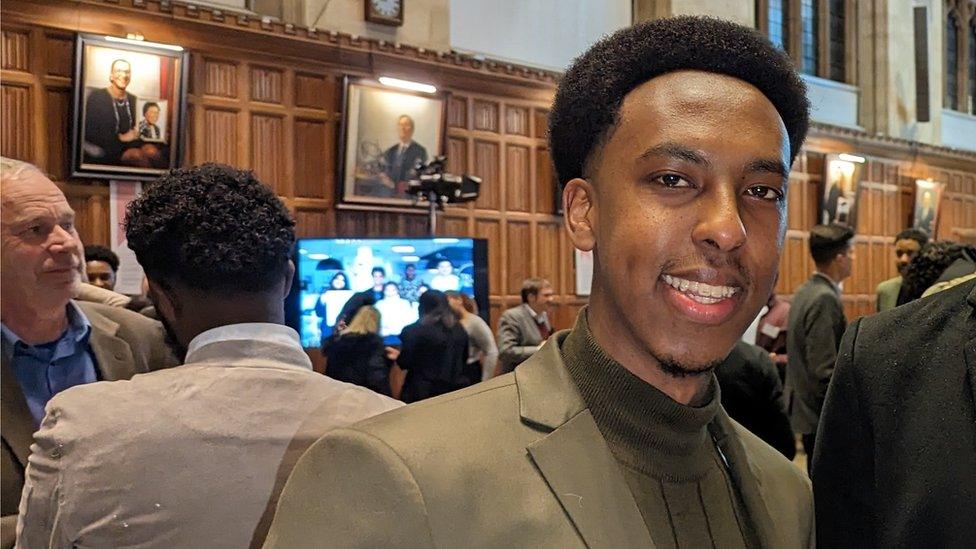
Mohammed Ali wants to give other young people in Bristol the "opportunity to thrive"
A new scheme is aiming to close the inequality gap by helping young people from under-represented communities secure lifelong careers.
Our City 2030 intends to help a person from every inner-city household in Bristol secure a salary of £30,000 by 2030.
Entrepreneur Mohamed Ali, 26, is supporting the venture after facing discrimination growing up.
"I faced obstacles because of my background - we need change," he said.
The project has been organised by social enterprise Babbasa and Bristol City Council, to give young, disadvantaged people the "opportunity to thrive" in work and help increase representation.
It was launched at an event on Thursday, which brought together nearly 300 Bristol employers, young people and supporters.
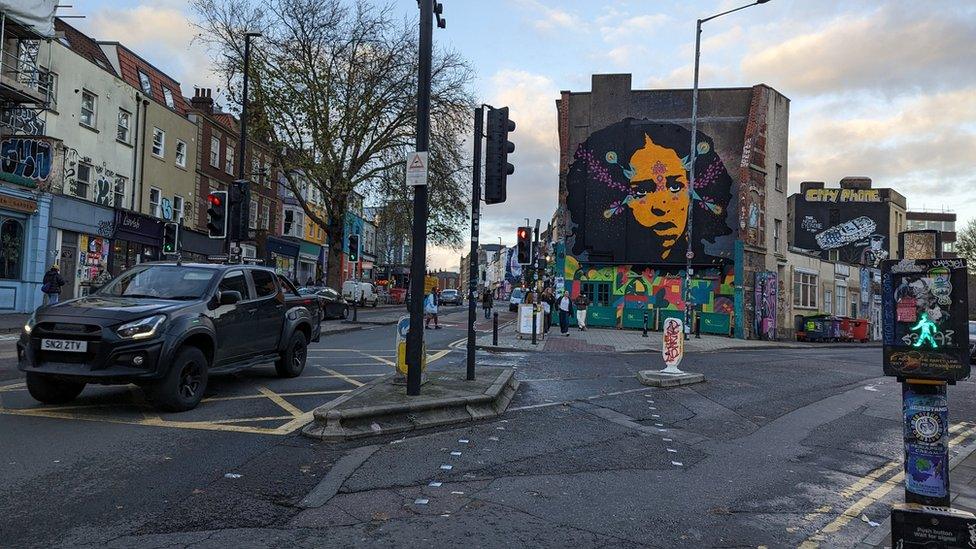
Mr Ali grew up in St Pauls, an inner-city part of Bristol
Mr Ali said he found it difficult to find funding and support when he wanted to launch his own clothing company at the age of 16.
"People were always telling me that I wasn't good enough or not worthy of achieving my ambitions - I put this down to my background and skin colour," he said.
He then found help from Babbasa and is now the proud owner of his own business which supports entrepreneurs from disadvantaged backgrounds.
"They gave me inspiration, hope and ideas. They taught me to go higher and achieve more," he said.
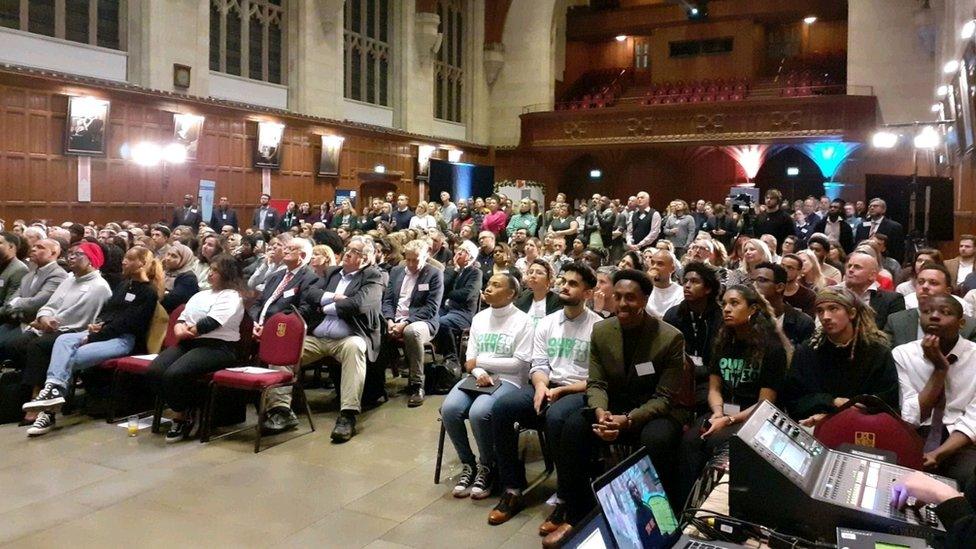
About 300 people attended the launch event
Bristol mayor Marvin Rees said: "A fairer future for young people in Bristol is key to future success as a city and I'm incredibly excited to see this blueprint launch."
Many Bristol-based businesses have already pledged involvement through sponsorship of the programme included Nisbet Trust, Pytch Studio and Silverback films.
"This vision aims to create real change across the city, taking individuals and families away from the poverty line," said Poku Osei, founder of Babbasa.

Follow BBC West on Facebook, external, Twitter, external and Instagram, external. Send your story ideas to: bristol@bbc.co.uk , external
Related topics
- Published12 November 2022
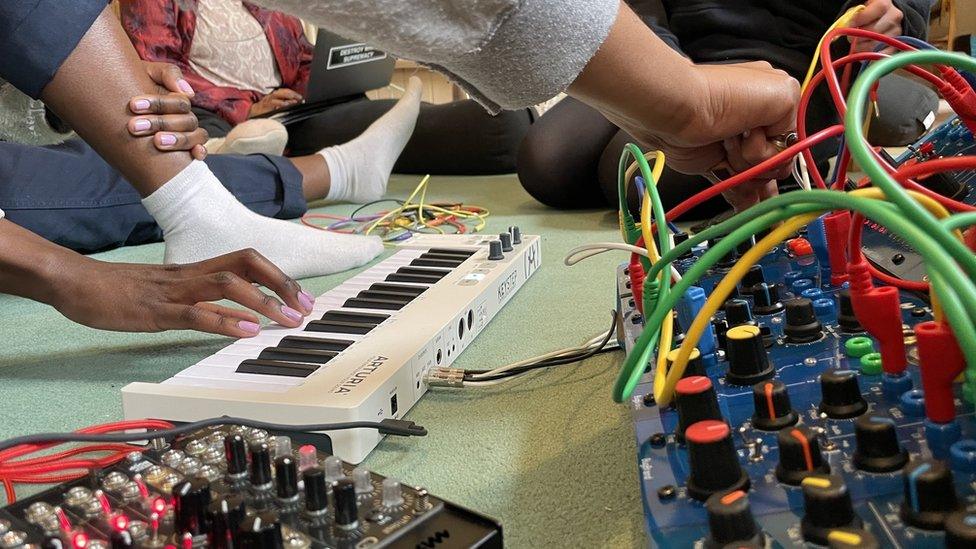
- Published17 November 2022
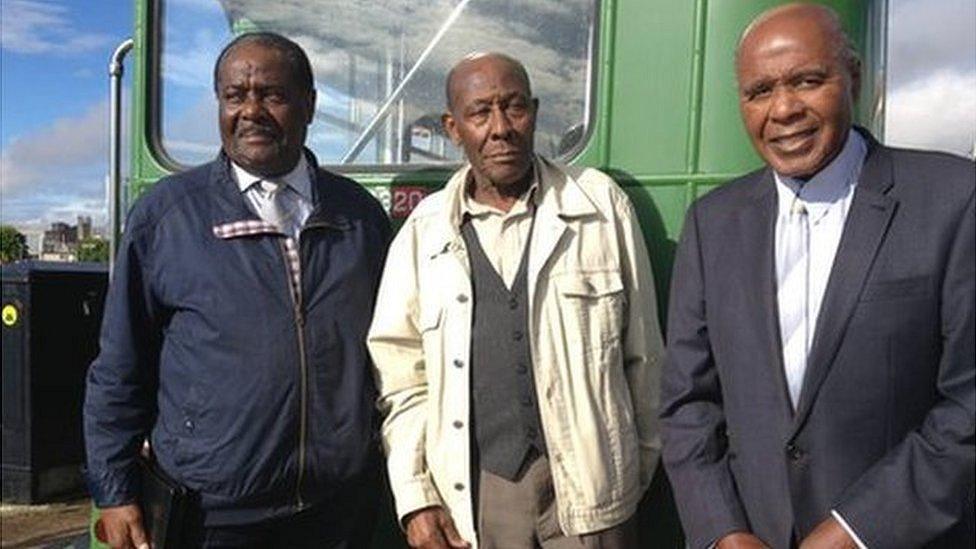
- Published12 October 2019
